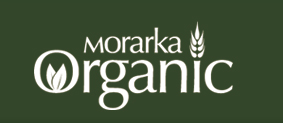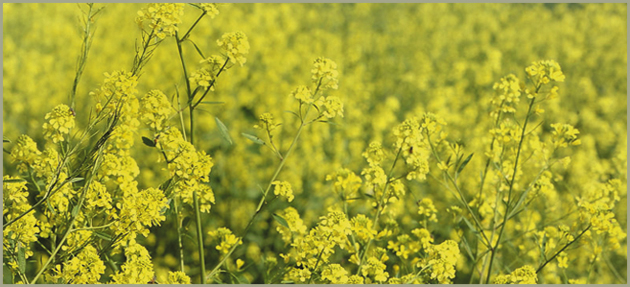-
-
|
| |
|
|
Since the modernization of Indian agriculture witnessed relatively low penetration rates, it has therefore been possible for Morarka Organic to establish gains in organic farming in a relatively short period of time.
Adoption of organic practices not only improved soil health but also its productivity, such that it is even being considered as the ultimate solution for the ‘Evergreen Revolution’. This fact generated a great deal of interest and support from the government and its various agencies for the promotion of organic farming in India. It has even facilitated allocation of increased resources for this sector.
|
| |
|
|
When it came to promoting organic agriculture within the farming community, Morarka Organic used the participatory approach, i.e., they involved farmers and local entrepreneurs. This approach also enabled Morarka Organic to promote organic agriculture as a tool for reducing the ever increasing cost of cultivation. While on one hand this method benefited poor farmers, it also established a model of entrepreneurial involvement in rural development.
Morarka Organic observed that in almost every place which has taken up organic agriculture, there were two important issues – fertility management and pest management – which have been raised by both farmers and agricultural scientists. The solution was simple. Morarka Organic introduced vermiculture and its modified applications to take care of fertility management issues, and it proved successful in almost all conditions. As for pest management issues, they observed that adoption of biological fertility management practices substantially reduces incidence of insects and pests. As for the other problems, traditional practices of using botanicals produced at the farm were found to be effective in 70-80% of situations. With the development of the Probiotics approach to pest management, major problems can now be easily addressed under organic cultivation.
In all, adoption of organic management practices has enabled up to 40% reduction in the cost of cultivation in almost every condition.
|
| |
|
|
|
read more |
| |
|
-
|
| |
|
|
| In agriculture today, the management of the value chain - from cultivation to consumption, from farm to fork - is fragmented. It is fragmented in terms of the science that is being understood and subsequently the way with which it is managed by different stakeholders. In the last 50 years, over-enthusiasm in promoting individual domain expertise has resulted in the breakdown of the value chain into many small components, and each component despite being linked with others is pursued independently. As a result, today, Value Chain Management in agriculture is nobody’s domain. |
| |
|
|
The many ills affecting agriculture today is due to this approach. Food is being produced, collected and harvested in isolation from how it is processed, stored, packed, sold, served and also consumed. Most quality issues concerning food like contamination, adulteration, nutrition and safety, are a result of this fragmentation. Another significant issue of the current scenario is the disproportionate share of consumer spending which is distributed to different players in the food value chain. In most cases, the producer share is always less when compared to the processor, marketing agency and retailer’s share. This has not only been eroding the productive capacities of natural resources on which food production is dependent, but also the livelihood of those who produce food.
Organic agriculture being holistic in concept, management and certification addresses all issues concerning the food value chain. Morarka Organic has therefore spent the last 15 years investing in solutions which address issues concerning various components of the food value chain. The outcome of its investments have been spectacular, and in many cases overwhelming. Through better management of natural resources at the farm level, it was possible to reduce the overall cost of cultivation. Efficient procurement after primary processing from the farm itself, innovative scientific methods of storage, entrepreneurial involvement in decentralized processing, appropriate packaging solutions and better deals from the retailers, have also contributed in reducing the final price of certified organic products to the consumers.
Thus, there has been an increase in the overall size of the organic market. Furthermore, bringing in the efficiencies of scale benefitted producers as well as the consumers of organic food. The ultimate goal for any agriculture development initiative is thus easily achieved with adoption of organic management philosophy and the value chain management approach.
Since organic certification is process based, it relies on monitoring of the complete process from production to consumption. Thus it almost makes it a prerequisite to set up an efficient value chain management system.
As compared to many advanced economies, where food production is fairly industrialized and thus better organized, in India it has still not evolved in the desired manner. The food value chain is still dominated by preferences for fresh food. Very little investment has gone into creating capacities for bulk and industrialized processing.
Organic consumers being better educated, more aware and well evolved, have been placing equal demands on both raw/fresh produce as well as processed food products. However due to negligible infrastructure, there existed a complete vacuum when Morarka Organic began.
Morarka Organic has therefore invested in developing solutions. Besides breakthroughs in technology, equipments and methods, its business model involving grass-root level entrepreneurs is an example of Morarka Organic’s ability in value chain management and organic agriculture. These entrepreneurs today handle over 100 farm crops in decentralized locations and deliver 300 organic products on the retail shelf for consumers. As of today, this initiative supports over 1,00,000 small producers cultivating over 2,50,000 acres of organic land. With this experience, Morarka Organic has thus truly become the resource organization for organic value chain management not only in India but across the world.
|
| |
|
|
|
read more |
| |
|
-
|
| |
|
|
A new concept introduced by Morarka Foundation, i.e., the development of ‘Entrepreneurship in Agriculture’,i.e., ‘Agripreneurship’ has been the basis for rapid expansion of programme coverage in the last 10-12 years. It is now also being widely recognized as a tool for multiplication of development initiatives and is getting increasing support from planners and policy makers.
At Morarka Organic almost every thing at the field level, i.e., beginning with the enrollment of farmers for organic agriculture, supply of inputs, extension services, procurement, etc. is being managed by small entrepreneurs in the respective project areas.
While on one hand this has been able to create employment for educated unemployed youths in rural areas, on the other hand it has enabled Morarka Organic to establish a very efficient value chain management for organic agribusinesses. To a great extent many of its competitive strengths can also be attributed to this novel approach.
|
| |
The majority population being dependent on agriculture and other primary occupations, as well as the increasing population and reducing opportunities in rural areas and unemployment has become severe among educated rural youths. Despite spread of education majority of the young people coming from agricultural community or background have not been able to compete for available jobs, which demand specialized skills and knowledge. Even in their attempts to set up small entrepreneurial activities in the non-farm sector they have been faced with many problems generally not encountered by such youths in urban areas. These rural youth were identified by Morarka Organic for new opportunities of entrepreneurship in business activities related to agriculture.
It was felt that these rural youths have the basic understanding of agriculture, can be rooted to the local environment, possibly will have greater credibility, can be supported for promotion of business enterprises revolving around agricultural activities and thus the idea of Agripreneurship was initiated.
The Agripreneurship idea was evolved to be applicable to the entire agribusiness value chain, and experimented with the organic. It got broadly divided into three domains: |
| |
|
|
| |
• |
Back end of value chain, i.e., in the process of cultivation. Including knowledge management, i.e., documentation of practices & certification at the farm level |
| |
|
| |
|
|
| |
• |
Supply chain management, i.e., covering procurement, processing & value addition activities. |
| |
|
|
| |
• |
Front end, i.e., the distribution & retail for interface with the consumers, including consumer education & awareness generation activities. |
| |
|
| |
|
|
Right from the beginning as a strategy, the involvement of agripreneurs was integrated with all the activities. Initially when the technology for fertility management was mastered, it was disseminated through agribusiness centres set up by entrepreneurs. Youths were identified, trained and supported in large numbers. To be precise in the first five years alone over 10,000 such entrepreneurial units were established.
Subsequently, many of them after establishing relationships with the farmers started enrolling them for organic production. Support was once again extended to help set up record maintenance systems for certification and for technology transfer. For over 1,000 of them this became the viable business operation.
In the later stages, when sufficient volumes of certified organic crops were available, many existing & new entrepreneurs were assisted to set up procurement centers, processing units and storage infrastructure. Today, under the patronage & business tie-ups with Morarka Organic, over 5,000 m.t.of Certified Organic Farm Produce is being handled by over 100 agripreneurs. This is expected to double every six months at least for the next few years. This has not only been able to create decentralized infrastructure for handling of organic farm produce, it also brings in innovation in the processing & value chain management of organic products.
Since the last two years or so, a new set of entrepreneurs in the cities are being enrolled to set up distribution & retail network. Here once again preference is being given to socially disadvantaged groups like handicapped, widows, retired, etc. Organic retailing requiring the interactive process, as compared to conventional retail chains, the new entrepreneurs are far more effective & successful. Currently about 20-30 such outlets are being set up every month all over the country.
All these entrepreneurial initiatives have helped in creating a value chain management infrastructure that is now providing the competitive edge to all the offerings from Morarka Organic. With the little success it has achieved in this direction, Morarka Organic is now developing this model for much wider applicability as well. |
| |
|
|
|
read more |
| |
|
|

